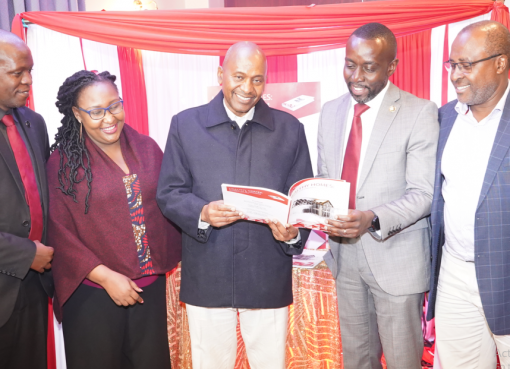Governments need to invest in information availability, accessibility and sensitization of population on the health products and opportunities.
According to a study done by Open Society Initiative of East Africa (OSIEA) on the impact of government supported Maternal Programs on maternal health outcomes in Kenya, there are key gaps in the implementation of the free maternal health care declaration.
Insufficient information at the community level to influence demand for quality services, low public participation in the policy development and structures that guide maternal health care and impact of culture in maternal health making pregnancy a private affair remain a challenge to maternal mortality.
Speaking during the launch of the report in Nairobi on Tuesday, OSIEA Principal Investigator, Owuor Olungah said that there was lack of involvement of stakeholders due to the top-down nature of the policies in Kenya.
“Free maternity declaration was a political decision that was made at the apex of political leadership and all public health facilities were expected to provide services regardless of their capability in terms of personnel and resources,” said Prof. Olungah
He added that the declaration has been seen by the implementers as focusing mainly on reduction of financial barriers without considering other important impediments like distance to health facilities, staff attitude and motivation as well as availability of adequate equipment.
“In all the facilities visited in Kilifi, Migori and Nairobi, there was problem of resource flow and no proper accountability for the flow of resources especially in health facilities that provide services without re-imbursement,” noted Prof. Olungah.
The investigator stated that since the re-imbursements were not forthcoming, the facilities thus provided poor quality services as well as being forced to refer clients to private health facilities where they were expected to pay for the services because of lack of basic supplies.
He however, alluded that devolution has been touted as a great idea that has enhanced healthcare provision and brought services closer to the people adding that more hospital based births are now being recorded.
“For instance, Migori County Referral Hospital reported an increase from 120 to 300 deliveries per month while Kilifi has seen an increase from 300 to 500 per month,” Prof. Olungah
OSIEA’s Co-Investigator, Dr. Rhoune Ochako said that the government should involve more stake holders in the policy formulation and implementation to enhance uptake of maternal health care services.
“There is need to modify the existing policies and guidelines for healthcare financing” she said and recommended that normal deliveries be refunded at a rate of Sh.8000 to Sh.10,000 per delivery while caesarian section to get refund at the rate of Sh.15,000 to Sh.20,000.
Dr. Ochaka added that community level accountability mechanisms should also be enhanced and all maternal deaths reported and documented and where possible corrective measures taken to avoid repeat occurrences.
“County governments should further be empowered to guide and coordinate the identification of the maternal health care needs in the counties to avoid duplications of interventions,” she said
A woman dies every minute during childbirth around the globe and half of these deaths occur in Sub- Saharan Africa. East Africa has a maternal mortality rate standing at about 500 to 100,000 live births.
In Kenya, it is estimated that 6,300 women die each year during pregnancy and childbirth. The target therefore to reduce maternal mortality ratio to 147 would not be met due to the slow progress at reducing maternal mortality with the current 62 percent of births attended to by skilled personal while 61 percent taking place in health facility .
By David Musungu/Njeri Kariuki /Wangari Ndirangu



